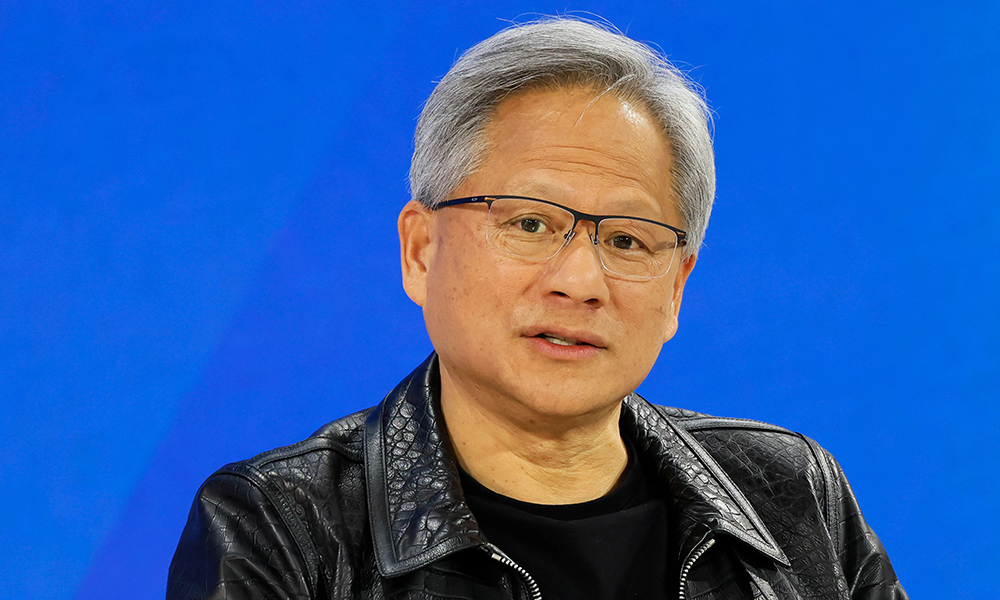
英偉達(Nvidia)首席執行官兼聯合創始人黃仁勛(Jensen Huang)避免不必要的會議,優先考慮效率,而不是例行檢查。黃仁勛在斯坦福大學(Stanford University)發表演講時透露,他厭惡頻繁會面,即使是與他的55位直接下屬。
這位億萬富翁表示:“我不會和他們中的任何一個人進行一對一交流。”
黃仁勛強調,頻繁的會議會擾亂他的日程安排,妨礙更廣泛的團隊應對挑戰、有效工作和保持透明度。
他說:“他們從來沒有聽過我對他們說什么,只有他們自己知道相關信息。沒有一條信息是我以某種方式偷偷告訴員工,而不告訴公司其他人的。”
這位61歲的科技企業家補充道:“這樣一來,我們公司就能保證敏捷性。讓信息盡可能快地流動。我們的目標是讓員工發揮所長,而不是通過提供信息為其賦能。”
但這并不意味著他沒有為團隊人員預留時間:黃仁勛堅稱,他仍然會定期與高管團隊會面,只是他們不需要在日程中留出時間以達成共識。
他解釋說:“我不給他們任何人寫點評。我經常點評他們的工作,他們也會給我點評。”
但當員工確實需要與他會面時,黃仁勛堅持說他會“為他們放下一切”。
領導們一致認為:不必要的會議毫無用處
黃仁勛并不是第一個認為開會不是利用時間的最佳方式的領導者。
潘朵拉(Pandora)的首席執行官對《財富》雜志表示贊同這一觀點:無論需要與否,過多的會議導致每個部門或公司的問題都得到了“同等關注”。
盡管亞歷山大·拉西克(Alexander Lacik)是全球最大珠寶商的領導者,但他還是限制了與管理層的會面。
他說:“只有一、二、三項活動能真正產生高得不成比例的價值,其余的都是背景噪音。”
“隨著時間的流逝,我的職業生涯也接近尾聲,我更加清楚地認識到,應竭力完成能產生巨大影響的工作。”
同樣,Zoom創始人袁征(Eric Yuan)也認為,大多數會議都很耗費時間,因此他正在開發“數字孿生技術”,可以在員工做自己更感興趣的事情時旁聽會議。
電商巨頭Shopify則更進一步,去年在全公司范圍內進行了一次“日歷大清除”,取消了所有兩人以上的會議,目的是讓員工有更多時間處理其他工作。
就連杰夫·貝索斯(Jeff Bezos)(“混亂會議”的忠實粉絲)也制定了嚴格的章程,以確保會議發揮效力,包括用一份六頁的備忘錄代替PPT(因為它們太含糊不清了),以及在會議開始時預留半小時,讓大家一起默讀備忘錄,然后再進行“真正有意義的討論”。(財富中文網)
譯者:中慧言-王芳
英偉達(Nvidia)首席執行官兼聯合創始人黃仁勛(Jensen Huang)避免不必要的會議,優先考慮效率,而不是例行檢查。黃仁勛在斯坦福大學(Stanford University)發表演講時透露,他厭惡頻繁會面,即使是與他的55位直接下屬。
這位億萬富翁表示:“我不會和他們中的任何一個人進行一對一交流。”
黃仁勛強調,頻繁的會議會擾亂他的日程安排,妨礙更廣泛的團隊應對挑戰、有效工作和保持透明度。
他說:“他們從來沒有聽過我對他們說什么,只有他們自己知道相關信息。沒有一條信息是我以某種方式偷偷告訴員工,而不告訴公司其他人的。”
這位61歲的科技企業家補充道:“這樣一來,我們公司就能保證敏捷性。讓信息盡可能快地流動。我們的目標是讓員工發揮所長,而不是通過提供信息為其賦能。”
但這并不意味著他沒有為團隊人員預留時間:黃仁勛堅稱,他仍然會定期與高管團隊會面,只是他們不需要在日程中留出時間以達成共識。
他解釋說:“我不給他們任何人寫點評。我經常點評他們的工作,他們也會給我點評。”
但當員工確實需要與他會面時,黃仁勛堅持說他會“為他們放下一切”。
領導們一致認為:不必要的會議毫無用處
黃仁勛并不是第一個認為開會不是利用時間的最佳方式的領導者。
潘朵拉(Pandora)的首席執行官對《財富》雜志表示贊同這一觀點:無論需要與否,過多的會議導致每個部門或公司的問題都得到了“同等關注”。
盡管亞歷山大·拉西克(Alexander Lacik)是全球最大珠寶商的領導者,但他還是限制了與管理層的會面。
他說:“只有一、二、三項活動能真正產生高得不成比例的價值,其余的都是背景噪音。”
“隨著時間的流逝,我的職業生涯也接近尾聲,我更加清楚地認識到,應竭力完成能產生巨大影響的工作。”
同樣,Zoom創始人袁征(Eric Yuan)也認為,大多數會議都很耗費時間,因此他正在開發“數字孿生技術”,可以在員工做自己更感興趣的事情時旁聽會議。
電商巨頭Shopify則更進一步,去年在全公司范圍內進行了一次“日歷大清除”,取消了所有兩人以上的會議,目的是讓員工有更多時間處理其他工作。
就連杰夫·貝索斯(Jeff Bezos)(“混亂會議”的忠實粉絲)也制定了嚴格的章程,以確保會議發揮效力,包括用一份六頁的備忘錄代替PPT(因為它們太含糊不清了),以及在會議開始時預留半小時,讓大家一起默讀備忘錄,然后再進行“真正有意義的討論”。(財富中文網)
譯者:中慧言-王芳
Nvidia CEO and co-founder Jensen Huang avoids unnecessary meetings, prioritizing efficiency over routine check-ins. Speaking at Stanford University, Huang disclosed his aversion to frequent catch-ups, even with his 55 direct reports.
“I don’t do one-on-ones with any of them,” the billionaire executive stated.
Huang highlighted that frequent meetings would clutter his schedule and hinder the broader team’s capacity to address challenges, work effectively, and maintain transparency.
“They never hear me say something to them, that is only for them to know,” he said. “There’s not one piece of information that I somehow secretly tell the staff; I don’t tell the rest of the company.”
“In that way, our company was designed for agility. For information to be to flow as quickly as possible. For people to be empowered by what they are able to do, not what they know,” the 61-year-old tech entrepreneur added.
But that doesn’t mean he has no time for his team: Huang insisted that he still regularly catches up with his executive team—they just don’t need to set time aside in their diaries to be on the same page.
“I write no reviews for any of them,” he explained. “I give them constant reviews and they provide the same to me.”
But when an employee genuinely needs a moment of his time, Huang insists he’ll “drop everything for them.”
Leaders agree: Unnecessary meetings are useless
Huang isn’t the first leader to argue that meetings aren’t the best use of time.
Pandora’s CEO echoed to Fortune that too many meetings result in every department or company issue getting “equal attention”—whether or not it needs it.
Despite spearheading the world’s largest jeweler, Alexander Lacik limits his catch-ups with management.
“There’s only one, two, three activities that actually draw disproportionate value and the rest is just background noise,” he said.
“As time has gone by and I’m getting towards the end of my career, I’m much more clear on trying to insert myself where I make a high impact.”
Likewise, Zoom founder Eric Yuan thinks most meetings are such a drain on time that he’s developing a “digital twin” that can sit in on them while workers do things they’re more passionate about.
E-commerce giant Shopify took one step further and actually axed all meetings?involving more than two people last year, in a company-wide “calendar purge” meant to give employees more time to work on other tasks.
And even Jeff Bezos—a big fan of “messy meetings”—mandates a strict protocol to ensure they’re actually useful, complete with a six-page memo instead of a PowerPoint (because they’re too vague) and half an hour set aside at the start of the meeting to silently read it together before having “a really elevated discussion”.






